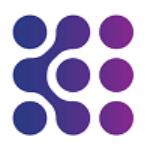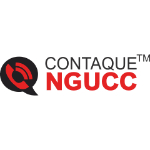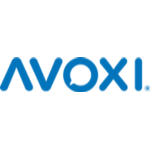TechnologyCounter provides genuine, unbiased real user reviews to help buyers make informed decisions. We may earn a referral fee when you purchase through our links, at no extra cost to you.
List of 15 Best Automatic Call Distribution Software
Showing 1 - 15 of 32 productsServetel is an innovative cloud communication platform that specializes in providing top-notch solutions for businesses of all sizes. With its user-friendly interface features, Servetel enables companies to streamline their communication processes an...Read Servetel Reviews
Avaya is a leading provider of innovative communications software designed to empower businesses of all sizes. With a strong commitment to customer satisfaction, Avaya offers a wide range of solutions that enhance collaboration, increase efficiency,...Read Avaya Reviews
Knowlarity is a leading technology company that has revolutionized the way businesses communicate with their customers. With a mission to simplify and streamline communication, Knowlarity offers a range of solutions for businesses, including cloud-ba...Read Knowlarity Reviews
CloudTalk is a Call Center Software specially created for the use of agencies and small to medium-sized enterprises. It is an online solution that provides features such as Queue Management, Call Recording, Contact Management, and VoIP all in one co...Read CloudTalk Reviews
MyOperator is a leading cloud-based call management system designed to simplify and streamline communication for businesses of all sizes. With its user-friendly interface features, MyOperator enables companies to handle large volumes of calls effecti...Read MyOperator Reviews
Exotel is a leading cloud-based communication platform that connects businesses with their customers through reliable and scalable solutions. With a focus on simplifying communication processes and enhancing customer engagement, Exotel empowers busin...Read Exotel Reviews
Convoso is a software company that aims to revolutionize the customer engagement process for businesses of all sizes. With a team of experts technology, Convoso offers a range of innovative solutions that help companies connect with their target audi...Read Convoso Reviews
Kit19 is a solution for effortless is a management of projects, tasks, and teamwork. This innovative software is designed to simplify collaboration, streamline communication, and boost productivity. With Kit19, stay ahead of the game and achieve your...Read Kit19 Reviews
Ozonetel CloudAgent, is a solution for all your call center needs. With advanced features and seamless integration, CloudAgent streamlines your customer interactions and boosts your teams productivity. Say goodbye to manual processes and hello to a m...Read Ozonetel CloudAgent Reviews
RingCentral is a leading cloud-based communication and collaboration platform, trusted by over 350,000 organizations worldwide. It offers a suite of flexible and user-friendly communication tools, enabling businesses to connect, engage, and succeed i...Read RingCentral Reviews
Adversus is a solution for your businesss customer interaction needs. Designed to streamline communication, increase efficiency and maximize results, Adversus offers a modern platform for managing sales, support and marketing activities. With its use...Read Adversus Reviews
Contaque is a and sophisticated customer experience software that enhances communication and boosts productivity for businesses of all sizes. With its advanced features and user-friendly interface, Contaque streamlines customer interactions and empow...Read Contaque Reviews
AVOXI is a leader in innovative telecommunications solutions, offering exceptional communication services to businesses of all sizes. With a focus on reliable is a global communication, AVOXI has become a trusted partner for companies seeking seamles...Read AVOXI Reviews
Aavaz, is a solution for all your communication needs. With its groundbreaking technology and user-friendly interface, Aavaz allows you to effortlessly connect with your customers through various channels like voice, messaging, and email. Enhance you...Read Aavaz Reviews
Freshdesk Contact Center, now known as Freshcaller, is a call center software that operates through the cloud. This user-friendly solution allows for quick set-up of a business call center and eliminates the need for managing the intricacies of call...Read Freshdesk Contact Center Reviews
- What Is Automatic Call Distribution Software?
- Top Reasons Why Businesses Need Automatic Call Distribution Software?
- What Are the Top Key Features of Automatic Call Distribution Software?
- What Are the Top Benefits of Automatic Call Distribution Software?
- What Are the Steps to Choose the Right Automatic Call Distribution Software?
- What Are the Types of Automatic Call Distribution Software for Different Industries?
- What Are the Technology Trends for Best Automatic Call Distribution Software?
- What Are the Deployment Options for Automatic Call Distribution Software?
What Is Automatic Call Distribution Software?
Automatic Call Distribution Software (ACD) is a software solution designed to facilitate the efficient management of incoming phone calls from various sources, including customers, employees, and stakeholders, within enterprises and organizations. This software is specifically engineered to enhance customer service within enterprises through the efficient distribution of calls.
The implementation of automated call distribution software enables the efficient allocation of incoming calls to the relevant staff members. This automation facilitates the delegation of call-answering responsibilities, so allowing team members to allocate their time and efforts towards more critical activities, rather than engaging in the manual handling of each individual contact.
The program facilitates the storage and tracking of multiple incoming calls, so ensuring compliance with established norms and service level agreements (SLAs) over a period of time. Furthermore, it enables enterprises to implement an automated Interactive Voice Response (IVR) system, facilitating the creation and tracking of tickets inside the system for individual users.
This is further augmented by the ability to access customer data, including historical purchases and account information, which empowers staff to provide superior customer support and ensures that customer inquiries are handled in an optimal and effective manner.
ACD software facilitates the efficient management of incoming calls, enabling firms to enhance their customer service capabilities and optimize employee productivity by reallocating time to other operational responsibilities.
Moreover, this technology aids organizations in enhancing their comprehension of clients by gathering significant call data and promptly addressing issues and inquiries.
Top Reasons Why Businesses Need Automatic Call Distribution Software?
1. The implementation of automated call routing in the call center has resulted in enhanced efficiency and productivity, as it enables prompt responses to consumer inquiries, hence improving overall performance.
2. Enhanced customer satisfaction and overall customer service can be achieved by ensuring equitable distribution of phone calls among call center staff.
3. The automated call distribution software capability to prioritize and classify calls based on specific criteria leads to improved accuracy and consistency.
4. The implementation of the program reduces the necessity for human call routing, resulting in a decrease in costs connected with this process.
5. One benefit of automatic call distribution systems is the reduction in wait times and the improvement in wait-time on calls. This is achieved by the utilization of algorithms that efficiently transfer calls, ensuring prompt service for callers.
6. One of the advantages of utilizing this system is the heightened visibility and responsibility that it offers, since it enables the tracking and management of all calls.
7. The scalability is improved as the volume of calls increases.
8. One benefit of enhanced agility is that operators are able to allocate their attention towards more intricate service enquiries, rather than boring call routing activities.
9. The best automatic call distribution software feature provides enhanced security by effectively preventing the unlawful sharing of customer or confidential information.
10. Enhanced call data analytics capabilities have been implemented, enabling the system to effectively monitor and record caller information, including caller location, call duration, and other relevant metrics.
11. The customer service experience and satisfaction are improved by minimizing waiting times and the need for customers to repeat their inquiries to several agents.
12.The implementation of more effective call routing has resulted in a reduction in call times, leading to a subsequent increase in revenue.
13. The inclusion of automated tracking and reporting elements facilitates the identification of call trends, busy periods, and areas that require improvement.
14. The utilization of pre-existing customer relationship management (CRM) systems is employed to facilitate organizations in accessing client information and history during telephone conversations.
15. The provision of training enhances resource allocation and utilization by enabling agents to develop expertise in managing specific call types.
What Are the Top Key Features of Automatic Call Distribution Software?
The top key features of Automatic Call Distribution (ACD) software include:
1. Traffic Analysis: The ACD software employs both historical and real-time data to analyze call traffic trends, monitor customer contact preferences, and enhance call routing with the purpose of maximizing customer happiness.
2. Predictive Dialing: This functionality enables best automatic call distribution software to autonomously initiate outbound calls to client phone numbers and direct incoming calls to agents who are currently available.
3. Queue Management: ACD software possesses the capability to effectively administer caller queues by intelligently routing incoming calls to the most suitable agents for optimal handling.
4. Voice Automation: ACD software has the capability to integrate voice automation functionalities, including automatic speech recognition (ASR) and text-to-speech (TTS), in order to optimize call procedures and enhance customer satisfaction.
5. Skills-Based Call Routing: This functionality has the capability to direct incoming calls to agents who possess the requisite abilities to effectively fulfill client expectations.
6. Cross-Channel Support: ACD software has the capability to facilitate automatic call distributions across many communication channels, including but not limited to phone, email, and chat.
7. Reporting & Analytics: ACD software possesses the capability to furnish complete performance data and analytics, thereby aiding contact centers in the identification and resolution of areas requiring development.
What Are the Top Benefits of Automatic Call Distribution Software?
1. Improved Efficiency: The utilization of Automatic Call Distribution (ACD) software facilitates the efficient allocation of incoming calls to appropriate agents or teams, employing predetermined criteria and so obviating the necessity for human call distribution. This enhances the operational effectiveness of the customer support staff and mitigates user waiting time.
2. Reduced Overhead: The ACD software effectively manages call routing, hence mitigating the necessity for increased manpower and associated overhead expenses. Additionally, it offers analytics to agents, such as agent availability and wait times, thereby enabling management to discover areas in need of improvement.
3. Improved Customer Satisfaction: The use of ACD software enables clients to expediently connect with the appropriate expert to address their inquiries, resulting in decreased wait and resolution times. Consequently, this enhances customer satisfaction levels.
4. Enhanced Customization: Advanced best automatic call distribution software offers a range of customizable routing rules that facilitate the accurate allocation of calls to appropriate destinations. This capability empowers businesses to enhance their customer service by ensuring that calls are directed to the most suitable resources.
5. Integrated Reporting: ACD software has a comprehensive reporting feature that enables managers to effectively identify and address areas in need of improvement, such as client wait times and average handling times.
6. Enhanced Security: ACD software facilitates the establishment of safe channels of communication between organizations and customers, employing various functionalities such as call encryption. The implementation of this measure guarantees the preservation of customer data confidentiality and integrity during all stages of its existence.
What Are the Steps to Choose the Right Automatic Call Distribution Software?
1. Identify your company's exact needs and objectives: Prior to commencing the quest for suitable automatic call distribution software, it is imperative to assess the specific requirements of your organization. Determine the key performance indicators and customer service metrics that are to be monitored, as well as ascertain the characteristics that hold the most significance for the customer service staff.
2. Research ACD software models: After determining the desired objectives for the ACD phone software, commence the process of investigating several types of automatic call distribution ACD software. Please take into account various functionalities such as automated call routing, call distribution, reporting, and analytics.
3. Make a shortlist: After the identification of various prospective automatic call distribution ACD software, it is advisable to generate a concise list of the most promising possibilities. Examine the characteristics inherent in each software solution, taking into account many criteria including cost, scalability, and user-friendliness.
4. Test prototypes and ask for demos: Automatic call distribution ACD software is advisable to request a prototype or a demonstration from the software seller in order to gain a more comprehensive understanding of the visual and experiential aspects of the software upon its implementation. Engage in conversations with customer service personnel who have prior experience in utilizing the program in order to obtain their valuable insights and opinions.
5. Consider customer service needs: Prior to finalizing a purchase choice, it is imperative to take into account customer service requirements, including customer support, scalability, and product upgrades.
6. Set up and implement the software: After the identification and testing of the most appropriate ACD phone software solution for the company's requirements, the next step involves initiating the implementation and installation procedures. It is imperative to verify that the software chosen aligns with the preexisting technological infrastructure.
What Are the Types of Automatic Call Distribution Software for Different Industries?
1. Financial Services Automatic Call Distribution (ACD) Software: This particular software solution is specifically tailored to cater to the needs of banks, investment firms, and other financial institutions. The system facilitates the allocation of incoming calls, offers a range of customer contact management capabilities, and includes call monitoring and analysis features.
2. Healthcare Automatic Call Distribution (ACD) Software: This particular software solution is specifically tailored for implementation into medical practices, hospitals, and other healthcare service providers. The system facilitates the establishment of secure routing protocols for incoming calls, offers customer data and appointment monitoring capabilities, and enhances messaging efficiency.
3. Telecom Automatic Call Distribution (ACD) Software: This particular software is specifically tailored to cater to the needs of telecommunications firms. The system facilitates the smooth transfer of incoming calls, furnishes comprehensive contact management information, and presents sophisticated call reporting capabilities.
4. Retail Automatic Call Distribution (ACD) Software: The ACD software in question is specifically designed to cater to the specific requirements of diverse retail enterprises. The system facilitates the targeted allocation of incoming client calls, offers comprehensive contact management information, and enhances the effectiveness of order management processes.
5. Ecommerce Automatic Call Distribution (ACD) Software: This particular automated call distribution software is specifically tailored for the purpose of facilitating operations within online retailers and ecommerce enterprises. The system facilitates the routing of inbound calls, enables the tracking of customer data, and facilitates effective communication between customers and the customer support staff.
What Are the Technology Trends for Best Automatic Call Distribution Software?
A. The technology trends for best Automatic Call Distribution Software include the following:
1. Cloud-Based Call Distribution Software: This program facilitates the utilization of call distribution functionalities by organizations through a remote server. The utilization of off-site phone and telecom systems obviates the necessity for on-site infrastructure, hence streamlining call management processes and enhancing the quality of customer service.
2. AI-Powered Call Routing: This functionality enables a company to direct phone calls to the customer care representative who possesses the highest level of proficiency, hence enhancing the overall customer experience. Additionally, the system has the capability to optimize the routing of outbound calls in order to achieve optimal efficiency.
3. Real-Time Reporting and Analytics: This enables enterprises to observe and evaluate call-related metrics, including caller demographics, customer feedback, call status, and other pertinent information. This study offers significant insights into the behaviors and preferences of consumers, agents, and operational procedures, hence enhancing the efficacy of decision-making processes and elevating the overall customer experience.
4. Self-Service Capabilities: This functionality facilitates consumer autonomy in engaging with the call center, so enabling them to acquire the necessary information without experiencing any waiting period or other forms of delays. The implementation of this automated service enhances the overall customer experience and alleviates the burden on customer service representatives.
5. Multi-Channel Support: An all-encompassing call distribution software should provide assistance across several communication channels, including video, chat, and social media, facilitating seamless connectivity between customers and the business. This facilitates the establishment of several channels of communication between firms and their clients, beyond the traditional telephone-based approach.
What Are the Deployment Options for Automatic Call Distribution Software?
The available deployment options for Automatic Call Distribution (ACD) Software encompass both on-premise installation and cloud hosting, which may be executed either privately or via engagement with a managed service provider. The process of on-premise installation entails the customer organization taking responsibility for installing the ACD phone software on their own servers or network infrastructure.
In contrast, cloud hosting has the benefit of enabling call center administrators and agents to access the program from any remote location. Both alternatives may necessitate further setup, configuration, continuous maintenance, and support services from either the program vendor or another external supplier.















